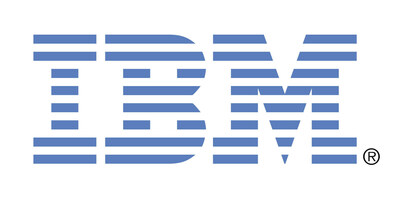IBM and WWF-Germany to Build New AI Solution to Support Conservation of Keystone Species
Rhea-AI Summary
IBM and WWF-Germany have announced a collaboration to develop an AI-powered solution for monitoring critically endangered African forest elephants. The project aims to enhance elephant tracking and support conservation efforts using IBM's Maximo Visual Inspection software. This technology will analyze camera trap images to identify individual elephants accurately.
The solution may also help assess the financial value of nature's contributions provided by these elephants, such as carbon sequestration. African forest elephants have experienced an 80% population decrease due to habitat loss and poaching. By leveraging technology to track and value natural capital, organizations can support climate change mitigation and identify sustainable finance investments.
The collaboration combines IBM's expertise in technology and sustainability with WWF's conservation knowledge to create innovative ways to accelerate sustainability efforts.
Positive
- Development of AI-powered solution for monitoring critically endangered African forest elephants
- Potential to assess financial value of nature's contributions, including carbon sequestration services
- Utilization of IBM Maximo Visual Inspection software for accurate elephant identification
- Collaboration between IBM's technology expertise and WWF's conservation knowledge
Negative
- 80% decrease in African forest elephant population due to habitat loss and poaching
News Market Reaction 1 Alert
On the day this news was published, IBM declined 1.03%, reflecting a mild negative market reaction.
Data tracked by StockTitan Argus on the day of publication.
Combining IBM's expertise in sustainability and technology with WWF's extensive experience in wildlife conservation, the new solution will be designed to utilize AI-powered visual inspection to enhance elephant tracking, supporting the accurate identification of individual elephants from camera trap photos. The goal of this solution is to help support key conservation efforts of African forest elephants, which have been shown to increase carbon storage in their forest habitats .
In the future, this technology may also be used by organizations to assess the financial value of nature's contributions to people (NCP) provided by African forest elephants, such as carbon sequestration 'services', recognizing the important role they play in maintaining healthy ecosystems.
The African forest elephant has experienced an over
By harnessing the power of technology to track and value natural capital, organizations can unlock new opportunities to support climate change mitigation efforts, while also identifying new sustainable finance investments.
"At IBM, we strive to make a lasting, positive impact on the world in business, our environment, and the communities in which we work and live. Our collaboration with WWF marks a significant step forward in this effort. By combining our expertise in technology and sustainability with WWF's conservation expertise, we aim to leverage the power of technology to create a more sustainable future." - Oday Abbosh, Global Sustainability Services Leader, IBM Consulting
As part of this collaboration, IBM Consulting worked with WWF to explore opportunities for innovation, aligning WWF's conservation initiatives with IBM's sustainability and technology expertise. IBM's own software, IBM Maximo Visual Inspection (MVI), will be used in this collaboration. Leveraging MVI's AI-powered visual inspection and modeling capabilities, the solution aims to analyze images from camera traps and film to identify individual African forest elephants with greater accuracy. Currently, the use case focuses on head and tusk-related image recognition, similar to a fingerprint for humans.
"Our technology will play a crucial role in streamlining the process of identifying and accounting for the individual elephants. This is an exciting new use of IBM software, which in combination with our consulting services and WWF's deep knowledge of the natural world can help create new ways to accelerate organizations' sustainability efforts." - Kendra Dekeyrel, VP of ESG and Asset Management at IBM
In addition, the two organizations aim to leverage IBM Environmental Intelligence to detect above-ground biomass and vegetation levels in specific areas where the elephants are present. This will enable more accurate predictions of the elephants' future locations to better quantify the NCP services they provide. Ultimately,this will help the process of quantifying and tokenizing the value of carbon services provided by the African forest elephant, providing organizations with insights they can use to further drive sustainability efforts.
Harnessing the power of natural capital for sustainability
IBM and WWF are committed to exploring innovative products and services to help organizations harness natural capital to accelerate their sustainability progress.
The concept of natural capital refers to the world's stocks of natural assets, including geology, soil, air, water, and all wildlife. These natural assets provide a range of ecosystem services and NCP, which are the direct and indirect ways nature contributes to human well-being.
For instance, a single African forest elephant, roaming freely in its natural habitat, can increase the net carbon capture capacity of the forest by almost 250 acres. This is equivalent to removing from the atmosphere a year's worth of emissions from 2,047 cars. According to the International Monetary Fund (IMF), this can translate into a dollar value of up to
"Counting African forest elephants is both difficult and costly. The logistics are complex and the resulting population numbers are not precise. Being able to identify individual elephants from camera trap images with the help of AI has the potential to be a game-changer. With AI, we will be able to monitor individual animals in space and time, giving us more robust and detailed population estimates and allowing for performance-based conservation payments, such as wildlife credits. The spatial data will also show us where these elephants choose to move – thus enabling us to protect these wildlife corridors." - Dr. Thomas Breuer, WWF Germany - African Forest Elephant Coordinator
ABOUT IBM IBM is a leading provider of global hybrid cloud and AI, and consulting expertise. We help clients in more than 175 countries capitalize on insights from their data, streamline business processes, reduce costs and gain the competitive edge in their industries. More than 4,000 government and corporate entities in critical infrastructure areas such as financial services, telecommunications and healthcare rely on IBM's hybrid cloud platform and Red Hat OpenShift to affect their digital transformations quickly, efficiently and securely. IBM's breakthrough innovations in AI, quantum computing, industry-specific cloud solutions and consulting deliver open and flexible options to our clients. All of this is backed by IBM's legendary commitment to trust, transparency, responsibility, inclusivity and service. Visit www.ibm.com for more information.
Media Contact:
Lily O'Brien
IBM
lilyobrien@ibm.com
![]() View original content to download multimedia:https://www.prnewswire.com/news-releases/ibm-and-wwf-germany-to-build-new-ai-solution-to-support-conservation-of-keystone-species-302219085.html
View original content to download multimedia:https://www.prnewswire.com/news-releases/ibm-and-wwf-germany-to-build-new-ai-solution-to-support-conservation-of-keystone-species-302219085.html
SOURCE IBM








